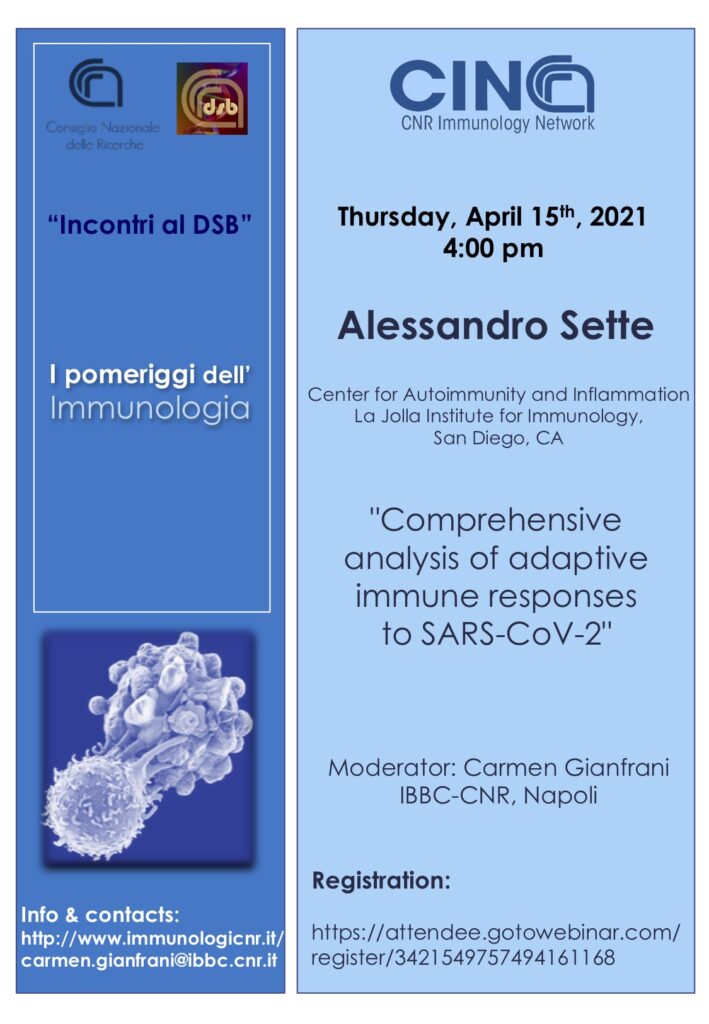Prof. Alessandro Sette
Center for Autoimmunity and Inflammation, Center for Infectious Disease and Vaccine Research
La Jolla Institute for Immunology, San Diego, CA USA
“Comprehensive analysis of adaptive immune responses to SARS-CoV-2”
Chair: Dr. Carmen Gianfrani
Institute of Biochemistry and Cell Biology – CNR, Naples
Prof. Sette will review his studies in the course of the last year, starting from the prediction of potential targets and the demonstration of immune responses in early convalescents. Subsequent studies analyzed correlates of immunity in the acute phase of disease, and highlighted the phenomenon of crossreactivity between SARS CoV2 and common cold coronaviruses at the level of T cell recognition. The most recent studies characterized the duration of immune responses following natural infection, definition of the epitope repertoire for SARS CoV2 reactive T cells, and analyzed the impact of variant-associated mutations on T cell recognition.

Alessandro Sette has devoted more than 35 years to understanding basic mechanisms of antigen recognition and immune responses, measuring and predicting immune activity, and developing disease intervention strategies against cancer, infectious diseases, autoimmune diseases and allergies. His early work, in the mid-80s to mid-90s, related to the demonstration that the main biological function of MHC is to bind epitopes. From those studies, Sette’s group further developed the notion that different MHCs have distinct binding specificities that can be used to predict epitopes. Since then, his group has defined motifs for over one hundred different class I and class II MHC variants expressed from humans, and several other species. Throughout the last 17 years, he has been the PI of the Immune Epitope Database and Analysis Resource, freely available to the scientific community, which hosts immune reactivity data, and a series of bioinformatics algorithms to assist in the prediction and evaluation of immune responses. Sette’s group also discovered and characterized how MHC variants can be grouped according to broad functional specificities (MHC supertypes), greatly facilitating epitope classification, characterization and understanding the basic rules of epitope-MHC interactions. Over the last 36 years, Sette has been continuously involved in hundreds of epitope identification studies, in cancer, autoimmunity, allergy, and infectious disease. By probing the IEDB, it can be established that I have been involved in identifying over 8,000 different T cell epitopes. A recent focus of his laboratory has been the study of SARS-CoV-2 T cell immunity.
Complete List of Published Work:
